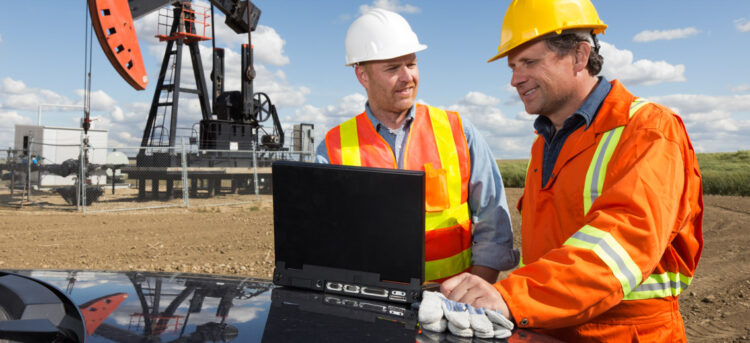Like many of their small business counterparts, the roughly 106,000 small mining firms in the U.S. rely on borrowed capital to purchase equipment, fund business initiatives, and otherwise fuel growth. And, like most small businesses in 2020 crawling out of the economic challenges caused by the coronavirus, it will be more challenging than it was in 2019 to access borrowed capital. Nevertheless, there are mining equipment financing options for 2020 that small business mining operations should know about.
Is It Possible to Qualify for Mining Equipment Financing with Bad Credit?
While it might not be impossible to qualify for equipment financing with bad credit, it will be more challenging as lenders typically tighten their credit criteria after major negative financial events like what we have been experiencing through the first half of 2020. Although they might not describe it this way, lenders are looking for the answers to three very important questions when they evaluate a loan application:
- Can your mining business repay a loan? Does your company have the income and cash flow to successfully service debt? To qualify for equipment financing, or any other financing for that matter, you will need to demonstrate that your mining company has enough revenue to make each and every periodic payment—which may be difficult post COVID-19.
- Will your mining business repay a loan? This is less a question about your revenue and cash flow and more a question of your track record and credit history. This is why your business credit profile matters. It’s probably safe to assume that a lender evaluating your business credit will understand, and maybe even make allowance for, a less-than-perfect credit profile resulting from the recent coronavirus crisis, but that’s not to say a chronic poor credit history that predates 2020 will be ignored.
- What will your business do should something unexpected happen? Lenders typically want to know that you will be able to make your periodic payments regardless of what happens, but that is why most lenders that make equipment loans will hold the equipment being purchased as collateral until the loan is paid in full.
If you can successfully answer these questions and demonstrate that your small mining firm can, and will, successfully service debt you will increase the odds of success with mining equipment financing. Lenders are basically trying to determine what you will do in the future based upon what you have done in the past.
How to Qualify for Mining Equipment Financing
Mining equipment financing shares many of the same credit requirements any small business would face when applying for a loan.
- A business license or current filing with the Secretary of State where you are doing business
- Personal guarantees will likely be required for all the business owners
- A minimum personal credit score of 600
- No bankruptcies in the last 7 years
- No unresolved tax liens
Individual lenders will likely have additional qualification criteria.
What Qualifies As Mining Equipment?
Any equipment used to conduct business can be considered equipment. This could include things like computers, office furniture, and office equipment used by any business. It also includes many of the common pieces of heavy equipment associated specifically with the mining industry.
- Aggregate Equipment
- Blasthole Drills
- Conveyors and Crushers
- Crushing Equipment
- Density Separators
- Dragline Cranes
- Dragline Shovels
- Drilling Equipment
- Excavating Equipment
- Extraction Machinery
- Exploration Equipment
- Feeders
- Grinding Equipment
- Loaders
- Magnetic Separators
- Material Handling Equipment
- Milling Equipment
- Mineral Processing Equipment
- Mining Trucks
- Processing Plants
- Quarry Equipment
- Reactors and Roasters
- Recycling Equipment
- Screening Equipment
- Sand and Gravel Equipment
- Stackers and Shakers
- Surface Mining Equipment
- Trommel Screens
- Trucks
- Underground Mining Equipment
- Vibratory Screens
- Washing Equipment
Options for Mining Equipment Financing
There are several options for capital equipment financing available to those mining businesses that qualify. In addition to traditional lenders like banks, the SBA offers loan guarantees to the mining sector and drilling industries who meet their requirements. Additionally there are a number of lenders that specialize in equipment financing or have divisions of their companies that specialize in equipment financing.
Viking offers mining equipment financing solutions, equipment leasing solutions, and sale leaseback solutions for small business owners that might not qualify at a traditional bank with loans from $1 million to $55 million. Their clients typically have $5 million to $250 million in annual revenue, or sufficient capital for an asset-based funding solution.
Trust Capital offers equipment financing that includes 100% purchase financing. You can borrow up to $300,000 by completing a simple one-page online application or up to $50 million with financial disclosure. They offer next-day funding with pre-funding available for approved equipment vendors. They also require no down payment and deferred payment options and terms up to seven years.
Nations Equipment Finance works on a case-by-case basis with businesses to finance the heavy-duty equipment used to mine for metals, coal, oil shale, stone, and gravel. The offer financing from $1 million to $50 million to businesses operating in the U.S. and Canada.
Balboa Capital offers equipment financing for many industries, including equipment loans for mining equipment. They are able to offer same-day funding in many cases, but the maximum loan amount is smaller than the lenders described above. An easy online application offers equipment financing up to $250,000 with no collateral requirement if you’ve been in business for at least a year, have $100,000 in annual revenue, and have what they characterize as a “decent” FICO credit score.
This list also includes a number of lenders that are part of Nav’s lender network.
Time Payment offers both equipment financing and leasing options up to $250,000 with an answer to your credit application within a few minutes. They will even work with startups and borrowers with a less-than-perfect credit history. They also provide a calculator to help you estimate your monthly payment based upon the amount your company is borrowing and the term of the loan—assuming you have a good credit.
Currency (Formerly Currency Capital)
Currency is a relatively new player in equipment financing that offers various funding options up to $500,000. The offer terms up to 72 months with no prepayment penalties. The also offer some 0% financing options.
OnDeck offers equipment financing up to $500,000 with terms between 2-5 years. They can give you an answer to your loan application within 24-48 hours. If you’ve got 3 years in business, a personal FICO score of at least 600, have annual revenues of $100,000 or more, and have a business bank account, you could qualify for an OnDeck loan.
Equipment Financing Rates and Terms
Like most small business financing, individual rates and terms will vary depending on the lender you choose, your business credit history, and your personal credit history, but here are some averages to consider as you look for financing for your mining equipment.
- Interest Rates: 2% to 20%
- Loan to Value Ratio: Up to 100%
- Repayment Terms: Up to 10 years
- Speed to Funding: Sometimes as quickly as within 2 business days
Alternative Financing Options for Equipment
In addition to financing the purchase of mining equipment, there are a couple of additional options you should be aware of as you make your equipment financing decisions.
- Capital/Finance Leases: Some equipment leasing agreements are classified as a capital lease, meaning,when accounting for the lease, it is considered more like a purchase of the asset and treated differently than an operating lease on the balance sheet. To qualify as a capital lease the life of the lease must be 75% or more of the asset’s useful life, it includes a purchase agreement for less than the market value at the end of the lease, at the end of the lease the lessee gains ownership of the asset, and the present value of lease payments exceed 90% of the asset’s market value.
- Operating/True Leases: Unlike a capital lease, an operating lease is a contract that allows for the use of the asset but does not convey any ownership rights of the asset being leased. Unlike a capital lease, an operating lease is not recorded on a company’s balance sheet and lease payments are accounted for as rent expense,
- Senior Secured Term Loans: This type of debt financing is issued by a bank or other institution and then repackaged and sold to investors. The repackaged debt will include multiple loans. It is referred to as ‘senior’ because it will be senior to all other claims against the borrower in the event of a bankruptcy. This type of financing is usually secured with a lien against the assets of the borrower.
- Lines of Credit: A line of credit is a preset borrowing limit that can be used, repaid, and used again as needed up to that preset limit. Some lines of credit are secured with collateral and others are not. An unsecured line of credit will usually be subject to higher interest rates.
- Invoice Factoring: Invoice factoring is not technically a loan, but rather the sale of a businesses accounts receivable at a discount to a third party, known as a factor. The factor pays an agreed-upon amount for the invoices as the time of purchase and will typically collect from the customer and pay the balance, minus the factoring charges, once the invoices are paid in full.
- Asset-Based Lending: Basically asset-based financing is a loan agreement secured by collateral. In the context of equipment financing the collateral may, or may not, be the equipment being financed.
Nav’s Final Word: Mining Equipment Financing
Unlike other small business financing options available in a post financial crisis like COVID-19, equipment financing is often available when other financial solutions are not. Offering a loan to business purchasing equipment, when that equipment is considered collateral, is considered a lower risk than other unsecured working capital financing options. There are numerous mining equipment financing options available from traditional sources like banks, and even SBA-guaranteed loans to online lenders. The available capital will likely fit the financing needs of many mining operations with some lenders offering up to $50 million in mining equipment loans.
If you’d like to talk to one of our credit and lending specialists at Nav, click HERE.
Click HERE for free business credit scores.
To view your options for business credit cards, click HERE.
This article was originally written on June 17, 2020.




Have at it! We'd love to hear from you and encourage a lively discussion among our users. Please help us keep our site clean and protect yourself. Refrain from posting overtly promotional content, and avoid disclosing personal information such as bank account or phone numbers.
Reviews Disclosure: The responses below are not provided or commissioned by the credit card, financing and service companies that appear on this site. Responses have not been reviewed, approved or otherwise endorsed by the credit card, financing and service companies and it is not their responsibility to ensure all posts and/or questions are answered.